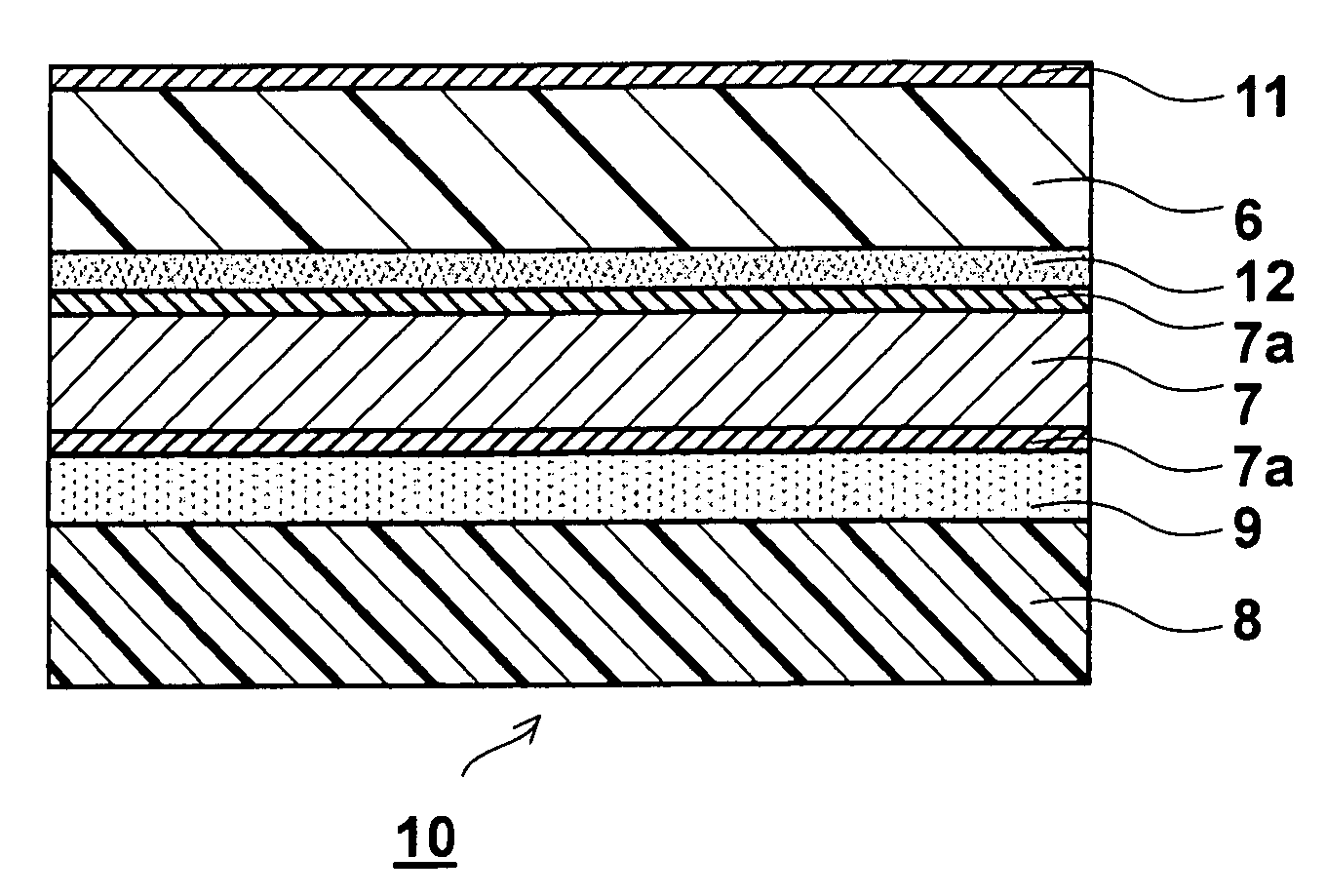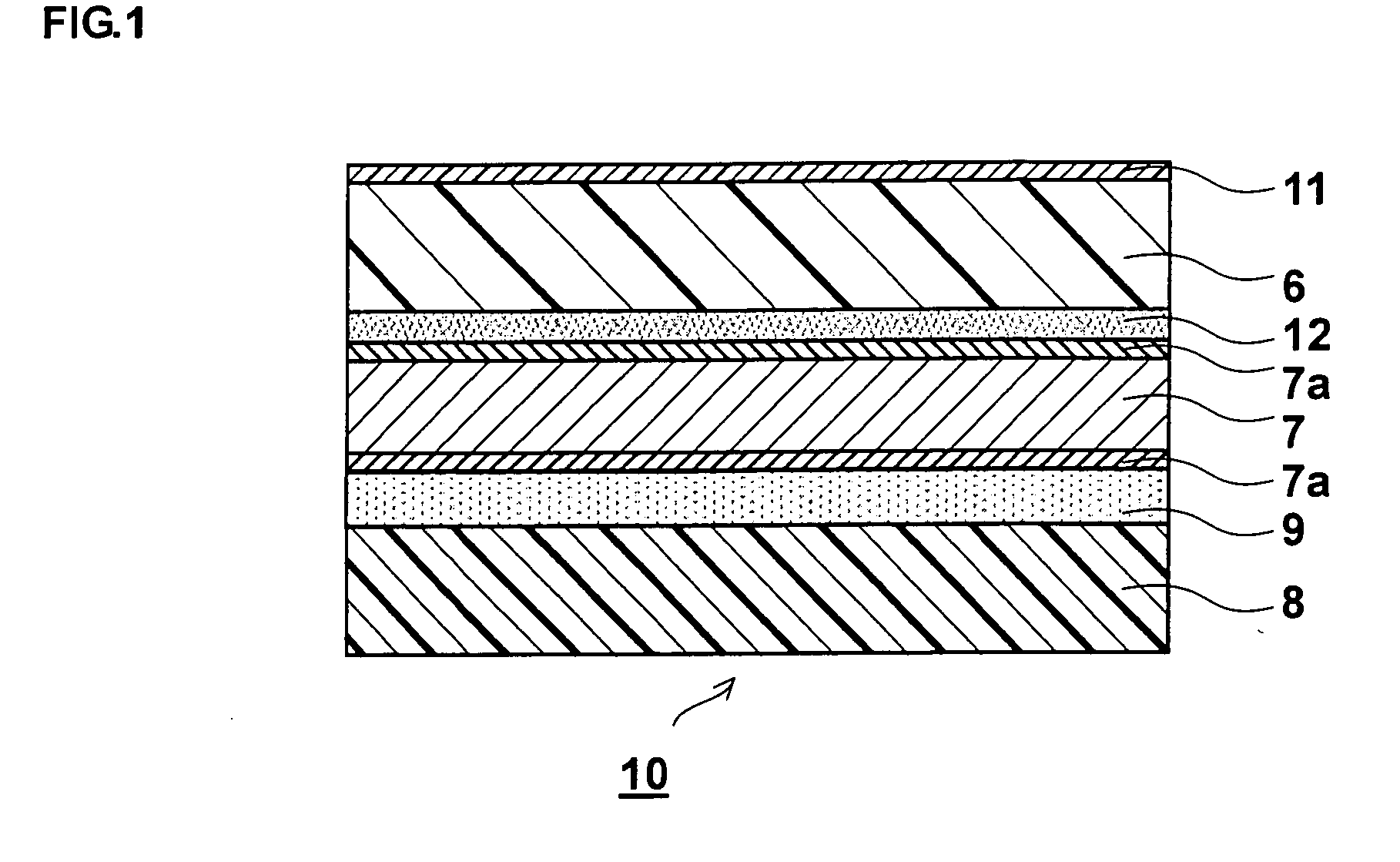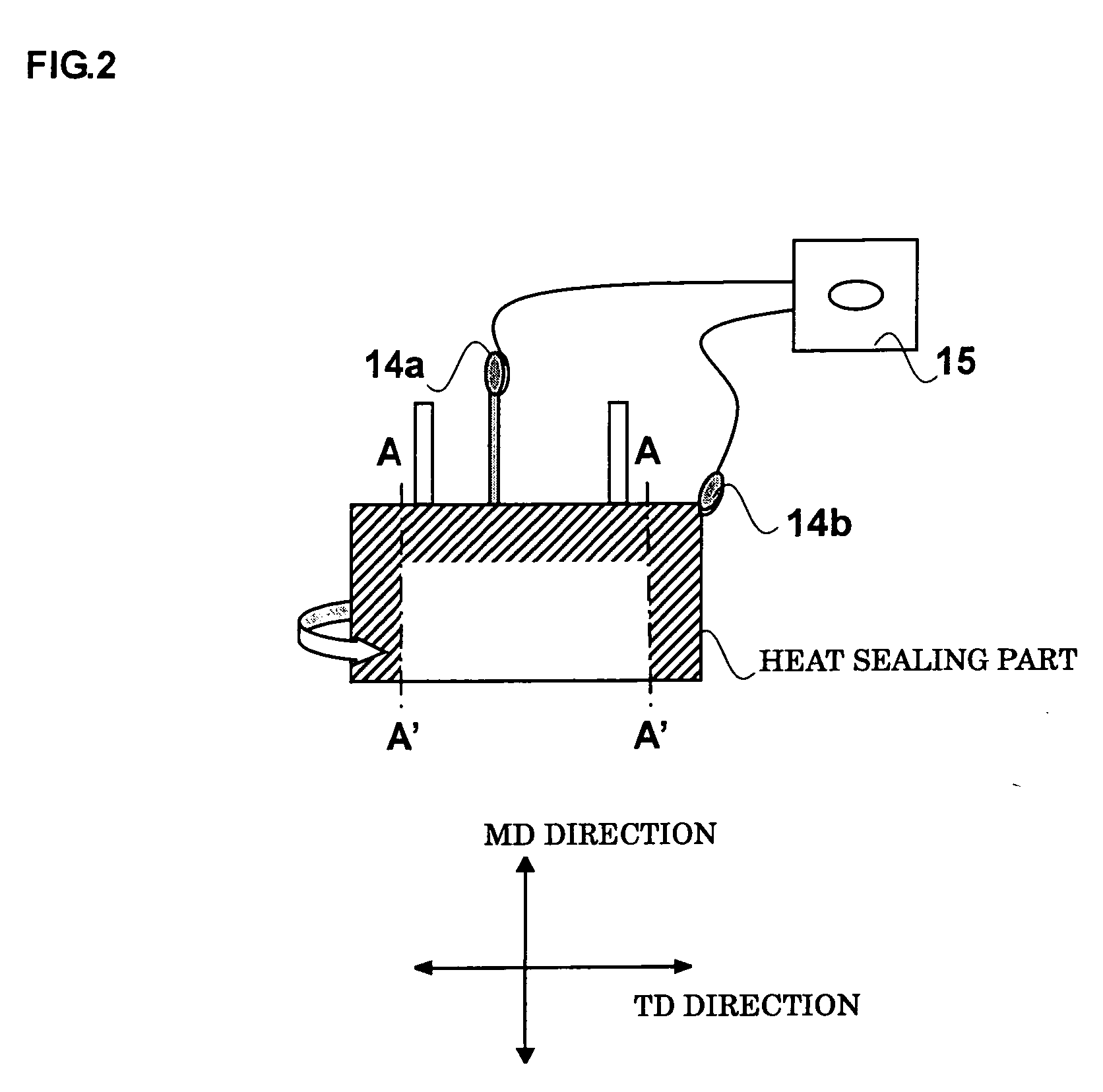Packaging material for flat electrochemical cell
a technology for electrochemical cells and packaging materials, applied in cell components, cell components, jackets/cases materials, etc., can solve the problems of no degree of freedom in shape, crack generation, and shape of batteries, and achieve excellent flexibility, heat resistance, insulation properties and moldability.
- Summary
- Abstract
- Description
- Claims
- Application Information
AI Technical Summary
Benefits of technology
Problems solved by technology
Method used
Image
Examples
example 1
[0128]The actions and advantages of the invention are hereunder specifically described with reference to the following Examples. Example 1 is concerned with the evaluation on insulation properties in a sealing part after heat sealing in the case where a propylene based elastomer resin is mixed in a polypropylene layer configuring a thermally adhesive resin layer.
[0129]The propylene based elastomer resin to be used in the present Example is NOTIO (registered trademark) PN-2070, manufactured by Mitsui Chemicals, Inc. This propylene based elastomer resin has the content of a propylene-derived constitutional unit of 71% by mole and contains an ethylene-derived constitutional unit and a 1-butene-derived constitutional unit as constitutional units other than the propylene-derived constitutional unit. Also, the propylene based elastomer resin has physical properties of a Shore A hardness (ASTM D2240) of 75, a melting point of 138° C., a density (ASTM D1505) of 867 kg / m3, a glass transition...
example 2
[0141]Example 2 is concerned with the evaluation on limited moldability in the case where a propylene based elastomer resin is mixed in a polypropylene layer configuring a thermally adhesive resin layer.
[0142]First of all, packaging materials for electrochemical cell the same as those in Comparison 1 and Inventions 1 to 4 as obtained in Example 1 were prepared and cut into a size of 80×120 mm in square. Next, each of the samples was molded into an exterior body of an embossing type on one surface having a depth of 7.0 mm by using a molding die (female mold) having an aperture of 30 mm×50 mm and a corresponding molding die (male mold). A lithium ion battery main body was charged in the exterior body after molding, and an electrolytic solution was filled, followed by sealing in a sealing width of 5 mm.
[0143]Next, a positive terminal was charged in the electrolytic solution, a negative terminal was set such that a tip thereof reached an aluminum foil of the exterior body, and a voltage...
example 3
[0145]Example 3 is concerned with the evaluation on sealing strength in the case where a propylene based elastomer resin is mixed in a polypropylene layer configuring a thermally adhesive resin layer.
[0146]First of all, packaging materials for electrochemical cell the same as those in Comparison 1 and Inventions 1 to 4 as obtained in Example 1 were each prepared and cut into a sheet piece of 60 mm (MD direction)×60 mm (TD direction). Next, this sheet piece was folded double in the TD direction, and opposing two sides were heat sealed in a width of 7 mm to prepare an exterior body of a pouch type having an opening on one side thereof. The opening was heat sealed in a width of 7 mm at a surface pressure of 1.0 MPa for a sealing time of 3.0 seconds. At that time, by changing the sealing temperature to 150° C., 170° C., 190° C. and 210° C., respectively, samples were prepared.
[0147]Next, the heat sealing part in the foregoing opening of each of these samples was cut off into a thin rect...
PUM
| Property | Measurement | Unit |
|---|---|---|
| density | aaaaa | aaaaa |
| thickness | aaaaa | aaaaa |
| thickness | aaaaa | aaaaa |
Abstract
Description
Claims
Application Information
 Login to View More
Login to View More - R&D
- Intellectual Property
- Life Sciences
- Materials
- Tech Scout
- Unparalleled Data Quality
- Higher Quality Content
- 60% Fewer Hallucinations
Browse by: Latest US Patents, China's latest patents, Technical Efficacy Thesaurus, Application Domain, Technology Topic, Popular Technical Reports.
© 2025 PatSnap. All rights reserved.Legal|Privacy policy|Modern Slavery Act Transparency Statement|Sitemap|About US| Contact US: help@patsnap.com



